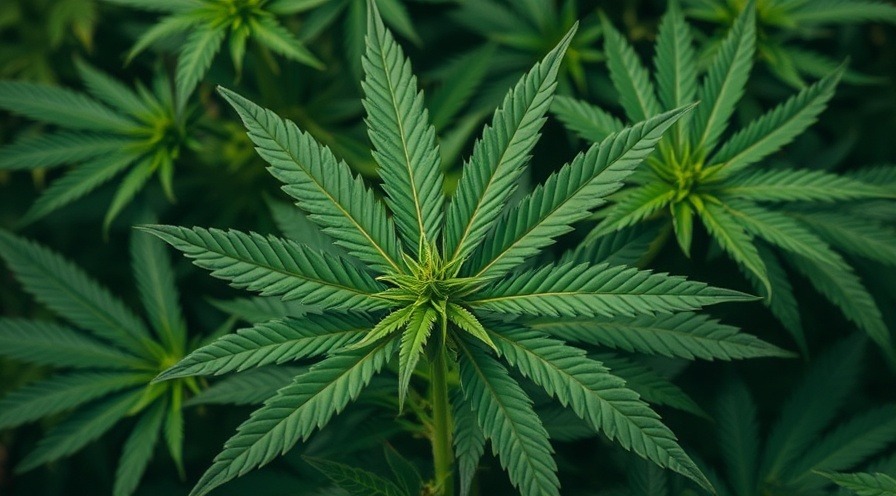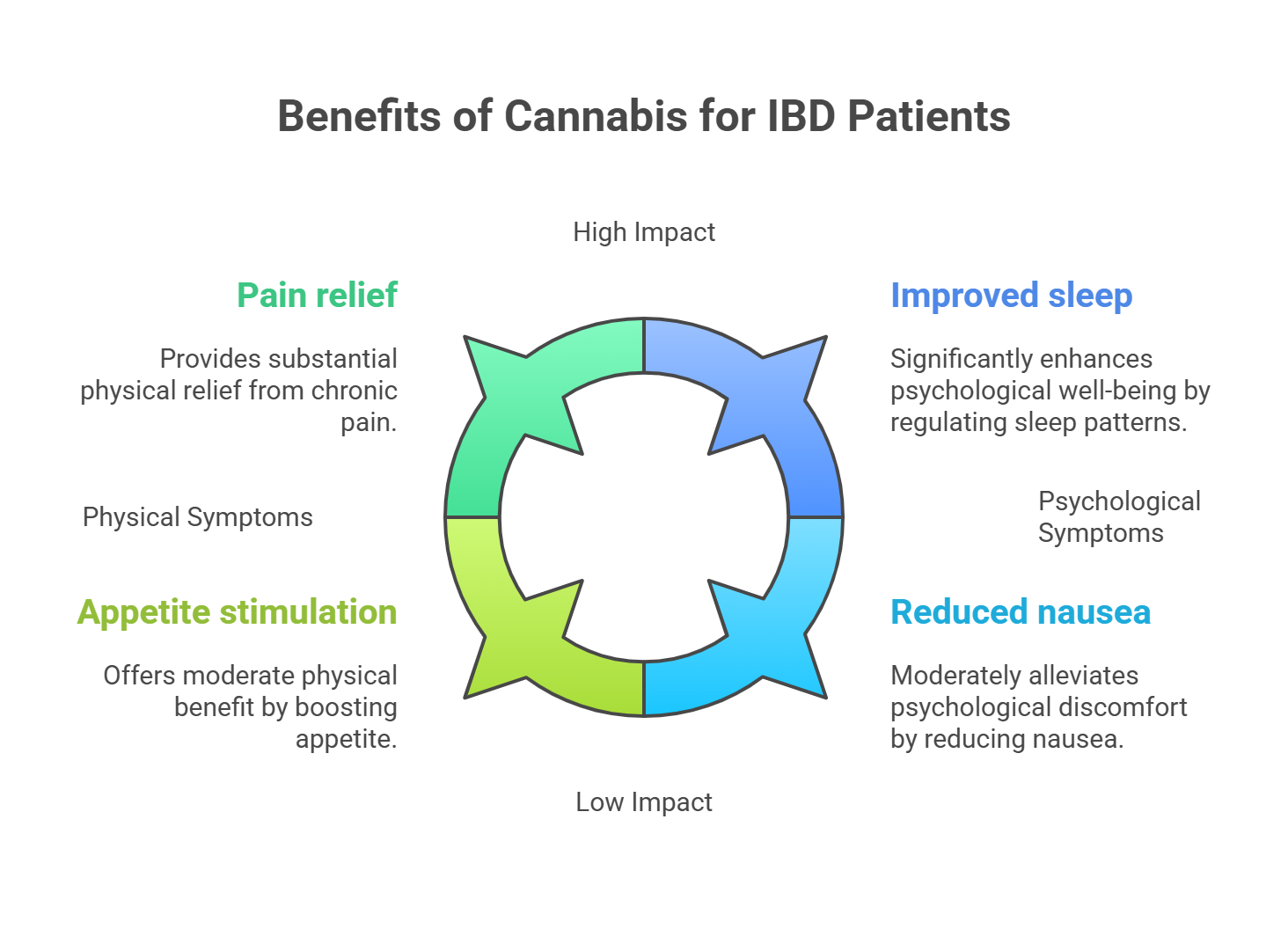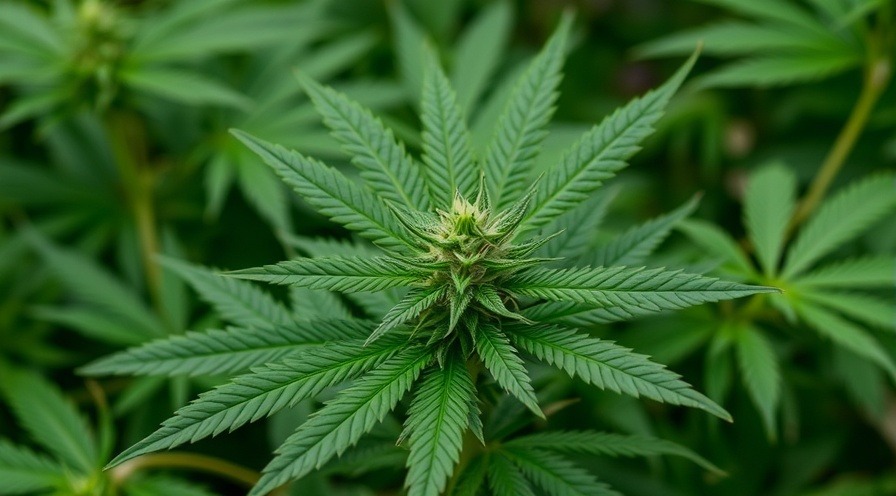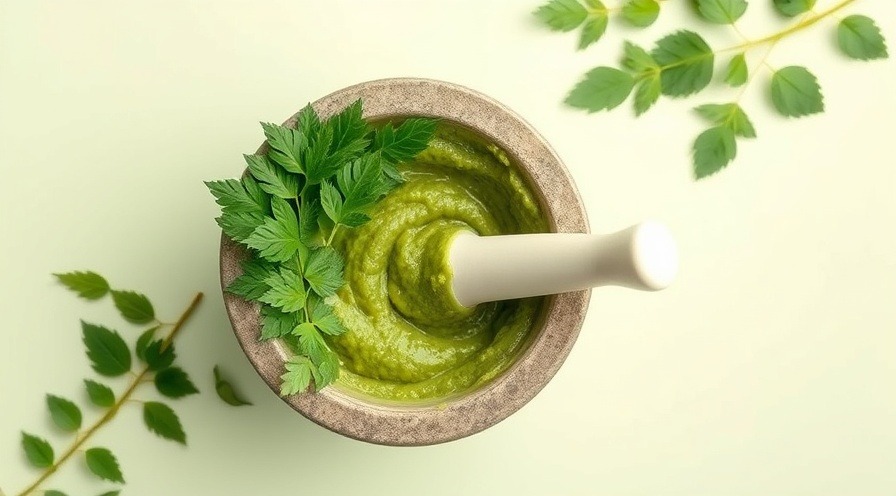
Can Cannabis Really Help with IBD? The Truth About Weed and Your Gut Health
If you're dealing with Inflammatory Bowel Disease (IBD), you've probably wondered: can cannabis actually help—or is it just blowing smoke? Let’s cut through the haze.
Short answer? Cannabis may help some people manage IBD symptoms like pain, cramping, and appetite loss—but it’s not a cure, and it's not without risk. It's like putting a cool rag on a fever: soothing, but not solving the problem.
In this article, we'll break down what science really says (not just Reddit), why the hype exists, what the risks are, and how to talk with your doctor about it without sounding like you're just angling for a medical card.
🌿 What is IBD and Why Are Patients Turning to Cannabis?
IBD—including Crohn’s disease and ulcerative colitis—is a chronic, painful condition involving inflammation of the digestive tract. Common symptoms include:
Severe abdominal pain
Diarrhea (sometimes bloody)
Fatigue
Weight loss
Malnutrition
Standard treatments often include immunosuppressants, corticosteroids, and biologics. Unfortunately, these can have nasty side effects—and they don’t work for everyone.
Enter cannabis. It’s being explored as a “natural” alternative because some compounds—particularly THC and CBD—interact with the body’s endocannabinoid system, which helps regulate pain and inflammation.

💡 What Does the Science Actually Say?
Some Relief, But Not a Replacement
A landmark study published in Clinical Gastroenterology and Hepatology found that cannabis use significantly reduced IBD symptoms in 90% of patients—but didn’t reduce the actual inflammation shown on colonoscopy (Naftali et al., 2011). Translation? It helped people feel better, but didn’t heal the disease itself.
According to Dr. Jami Kinnucan, a gastroenterologist at Michigan Medicine, “Cannabis may offer symptomatic relief, but it does not replace medical therapy for inflammatory control.” In other words—don’t toss your meds and light up just yet.
📚 Cited Source #1: Naftali, T. et al. (2011). Cannabis Induces Clinical but Not Endoscopic Response in Crohn’s Disease
📚 Cited Source #2: Dr. Jami Kinnucan, MD, University of Michigan, via American Gastroenterological Association
🧠 Insight: Think of Cannabis as a Band-Aid, Not a Blueprint
Imagine your gut as a house on fire (IBD), and cannabis as a comfy couch. It might feel nice to sit on it while the flames are burning, but it’s not going to put the fire out.
If you're considering cannabis, make sure you're also working with a GI specialist on a long-term treatment plan—one that actually targets the root cause.
🧪 Potential Benefits of Cannabis for IBD Patients
Appetite stimulation – Especially helpful for patients struggling with weight loss.
Reduced nausea – Common in both flare-ups and medication side effects.
Pain relief – Particularly for abdominal cramping or joint pain.
Improved sleep – Chronic inflammation messes with your circadian rhythm.

⚠️ But Let’s Talk Risks (Because They’re Real)
Here’s what could go sideways:
Cognitive side effects: Regular THC use may impair memory and focus, especially in younger users.
Dependency: About 1 in 10 cannabis users develops a use disorder.
Masking symptoms: Feeling better doesn’t mean you’re getting better. Delaying proper treatment can lead to complications—like bowel damage or surgery.
And let’s be blunt: Smoking cannabis? That’s a no-go for gut health. Inhaling combusted material can worsen inflammation systemically.
🧭 What Should I Do If I'm Considering Cannabis for IBD?
Ask your doc these questions:
“Could cannabis help relieve my symptoms alongside my current treatment?”
“What form would be safest—edibles, oils, tinctures?”
“Could cannabis interfere with any of my medications?”
If your doctor isn’t familiar with cannabis-based therapies, ask to be referred to someone who is. This is your health, not a TikTok trend.
🔍 Related Reading
🔮 Final Takeaway: Don't Self-Medicate on a Hunch
Cannabis might make living with IBD easier—but it’s not a silver bullet. Talk to your doctor, weigh the pros and cons, and be wary of hype. There’s a big difference between feeling better and being better.

🙋♀️ FAQ: Cannabis and IBD
Q: Can cannabis cure Crohn’s disease or ulcerative colitis?
Nope. It may relieve some symptoms, but there’s no evidence it reverses or halts disease progression.
Q: Is CBD safer than THC for IBD?
Generally, yes. CBD lacks the high and many of THC’s cognitive risks, and it may help with inflammation—but results are still mixed.
Q: Is smoking weed bad for IBD?
In short, yes. Smoking anything can irritate your gut and lungs. If you’re going the cannabis route, consider safer delivery methods like tinctures or capsules.
 Add Row
Add Row  Add
Add 




Write A Comment